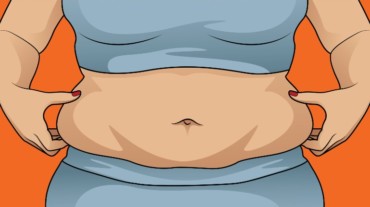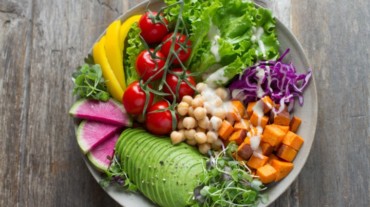
Polycystic ovarian disease (PCOD) is a common condition of hormonal disorder in women. A woman and her ovaries can get affected by this condition during her childbearing years- between 15 to 45 years of age. Ovaries, the reproductive organs of a woman’s body, produce hormones namely estrogen and progesterone. These hormones regulate the monthly menstrual cycle. The ovaries produce an egg every month. Production of an egg every month symbolises a healthy menstrual cycle but in case of PCOD, these eggs may not develop or get released by the ovaries as they normally should. During PCOD, the reproductive hormones of women get out of balance, due to which they may have to experience infrequent or prolonged menstrual periods or even excess male hormone (androgen) levels.
There are many symptoms of PCOD like irregularity in menstrual cycle, hair growth, acne, and male pattern baldness, but weight gain is the most common symptom among women with PCOD. The inflammation, hormonal imbalances and insulin resistance makes it difficult for the women to lose weight. Yet, even a small decline in weight can improve the menstrual cycles, hormone levels and insulin resistance in women. Hence, a woman should try and shed those extra kilos as early as possible.
Also Read: Having polycystic ovaries doesn’t mean you have PCOD. Here’s why

Carbs impact the insulin levels in our body, so lowering the carbohydrates consumption may help manage PCOD. A low glycaemic diet can also benefit women with PCOD, as it will reduce the insulin levels and hence, help in weight reduction.
Fibre helps a woman stay satiated after a meal, which is why eating a fibre-rich diet can help a woman lose weight. Adding plenty of fibre to your meals will help reduce insulin resistance, excess body fat and body weight.

Protein has properties that stabilise blood sugar and help to increase the feeling of fullness in the body after meals. It may also help in reducing body weight by reducing cravings, burning more calories and by managing hunger hormones. One can include healthy, high-protein foods like eggs, nuts, meat and seafood in their diet.
Eating healthy fats never harms your body. Instead, they help you feel more satisfied after having meals, thereby helping to reduce weight and other symptoms of PCOD. According to studies, although fats are rich in calories, eating healthy fats may actually expand stomach volume and reduce hunger. This will ultimately help you eat fewer calories throughout the day. For healthy fats, you can choose to add coconut oil, olive oil, avocado and nut butters to your meals.
Healthy gut bacteria has an active role in metabolism and weight management. Studies suggest that women with PCOD have fewer healthy bacteria in their gut than in women without PCOD. Also, certain probiotics may have a positive impact on weight reduction and that is why eating foods high in probiotics like yogurt, kefir, sauerkraut, etc. can help in increasing the number of healthy gut bacteria in the body.
Processed foods and added sugars raise blood sugar levels in the body, thereby increasing the risk of insulin resistance, which is linked to weight gain. That is why it is best to limit and avoid processed foods and added sugars.
Inflammation is common in women with PCOD, and is linked to obesity. Processed and sugary food items also contribute to inflammation in the body. A woman should eat a diet high in whole foods like fruits and vegetables to safeguard the body against inflammation and ultimately lose weight easily.
In order to lose weight, one needs to cut down on the calorie count in their diet, but under-eating is never the solution. Long-term calorie restriction can slow down the metabolism. Also, eating too few calories for a very long time can negatively impact the hormones that control your appetite. So, instead of eating less, eat healthy for healthy weight loss.

Exercise, along with a healthy diet, is the best way to lose weight effectively. Moderate exercises like brisk walk, jogging, cycling, and swimming can help with PCOD. They increase the body’s sensitivity to insulin, which reduces cardiovascular disease and type 2 diabetes. PCOD is also known to be associated with dyslipidemia, HTN (hypertension) and endometrial carcinoma. From a hormones point of view, regular exercise reduces estrogen levels in the body. Losing weight with exercise improves ovulation and insulin levels.
Getting enough sleep is crucial for every person, as it is critical for good health. Women with PCOD may experience sleep disturbances, including insomnia, sleep apnea and excessive daytime sleepiness. Lack of sleep is linked to obesity. Studies suggest that getting proper sleep can reduce body fat and promote weight loss.
Get Latest Updates on Fitness, Muscle Gain, Staying Fit, Weight Loss